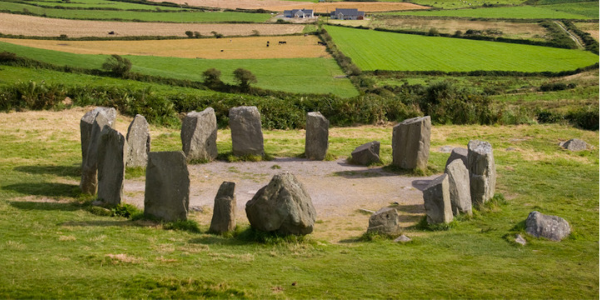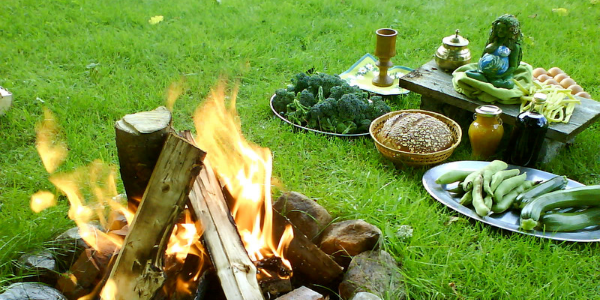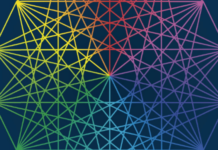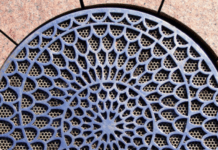
In nearly every religion in the world, there is a special class of people who dedicate their lives to the study of spiritual matters. Some of these people take on the role of clergy, to provide spiritual guidance and support to their communities. Often they are reliant upon the goodwill of the community they serve, and this relationship of interdependence allows for a mutually beneficial dynamic.
Many of us who were raised under socially dominant religious ideologies might have been exposed, even peripherally, to a kind of fear-based rule that has developed out of a rupture between the clergy and their community. There are some who disregard the well-being of the people they claim to serve and use their power for their own benefit. They extort money from their subjects and use it for their own glorification. Many of us have a tarnished view of a spiritual calling because of this, and for good reason at that.
Is institutionalized clergy members something we would even want in our communities? Many occult practitioners prefer to act as their own conduit for power, and so don’t recognize the need for an intermediary between themselves and the forces of the universe. In this way, it would seem that clergy members would fail to serve a lifestyle that placed the individual as the radical centre of their communion with the divine. However, is it necessary for clergy to act in this role, or is there more that they can and do accomplish?
Those of us who are drawn to participate in a magical or spiritual community are often wary of anyone who claims spiritual authority. Many of us have been abused at the hands of authority; We don’t want financial interests to corrupt our leaders, or to rob ourselves of the freedoms we have cultivated in a religion based on mutuality, respect, and connection with each other and the Earth. However, we do recognize power when we see it, and we do benefit from teachers and guides who can help us to connect more fully with our own truth.
What form then, does the role of the clergy take in a religion where leadership entails very little direction? Do we have a use for those who would dedicate their lives to spiritual matters? Can we support our teachers and seers well enough that we can benefit from their practice? Are we even organized enough to have such institutions? Are they something that we even desire?
The role of clergy in Pagan communities
One thing I know is that I want the ability to have generations of my own children taught the values of respect for the sacredness of our planet, of the sacredness of their bodies, and their connection to the source of all life. I would like to be able to have a community where I can share my values and practice in peace. I would like to sing with others who know the same songs. I would like the comfort that ritual and familiarity brings.
When communities can come together, to work synergistically towards a common good, our leaders emerge. Perhaps, individually and within the communities we find ourselves, we can learn to acknowledge and honour the work that is being done to repair and sustain the bonds between us. In western culture, the work of caring, of establishing and deepening social bonds is either overlooked or looked down upon. Those of us who are willing and able to put our energy into something to encourage future abundance and not just momentary pleasures can be overwhelmed by the sheer scale of the work to be accomplished. It may be the work of us rebels, heathens, witches, and sages to create systems of mutual support and care that allow reward for dedicated attention being spent in the work of reparation and connection.
If there is someone in our community who is a great listener, who gives advice without overstepping their bounds, who can inspire not only with their words but with their deeds, perhaps we can use the collective strength of our groups to feed these people, to make sure that they can continue to share their gifts with us without becoming overwhelmed. Perhaps it is corrupting to establish relationships under capitalism. Money can do good but it is not the only thing that can do good. Perhaps we can lift the weight off of those who lift the weight off of us. Perhaps we can do things for them to make their lives easier. Maybe we could do their dishes next time we were at their house, or drop some supplies off for them, or shovel their driveways. Maybe we could help weed their gardens or clean their windows. Maybe we could offer them healing when they are low.

Becoming clergy
So, what can you do if you feel called to take on this responsibility? We don’t abide by the governmental and religious structures of other religions, so there is not necessarily a certification process that we would easily recognize. Some may feel drawn to the training systems of certain circles and paths and rise to authority within those groups, but for the rest of us the road is winding. The first and most vital step in becoming a member of the clergy is the declaration of intent to the powers that be. We must hold in our hearts the intent towards service and when we have this in place, opportunities to serve will present themselves.
Now, this path is not a simple one and the work is sometimes unpleasant. I would humbly recommend a focused study in boundaries, not only for your own protection, but for the protection of others towards you. Help must be offered in such a way that relationships do not become co-dependent. We want to ensure that those we offer healing to do not become attached to us and reliant on our services. In order to be useful to our communities, we must protect the source of our energy and keep it flowing.
We must continually guard against ego and the desire to gratify and aggrandize ourselves. However, we are not bound by restrictive policies that separate us from pleasure as somehow antithetical to duty. Pride can bring power and joy as much as it can also bring arrogance and harm. We must not fear our own power. It is this power that we put to service in creating sacred space for the benefit of those under our stewardship. We strive to be a perfect channel of the universal will and as such, we must open our senses to its instructions while remaining connected in humility to our frailty and our limitations.
There is nothing better or higher about a leader. In fact, leaders have placed upon them a greater burden than most. Leaders must serve the greater good. They must use their power responsibly as they do the work of world building and of healing from the sickness that has caused the destruction of our environment.
It falls upon the clergy to make a refuge from the storm, to hold space for the wounded and the broken, to counsel, to gather, to feed those who are in need. If we are shepherds to a flock, their well-being, health, and happiness are directly tied to our own. Without them we do not have a place, and so we are duty-bound to our flock as the shepherd is to their sheep. It is only in our sickness that we see ourselves as separate.
If you feel called to serve, serve first yourself, make yourself strong and clear, put this clarity into service of the Earth, to make a paradise among the chaos. When the temple is ready, others will come to share in your worship.
Conclusion
It seems to me that our clergy members are those who look after the spirit of our communities, and these people often work in secret without reward or even thanks. Perhaps there are clergy members all around us, working both in the open and in secret towards our growth and freedom. Perhaps all it takes to see them is the willingness to accept ourselves and our communities as legitimate, our teachers as deserving of honour, our traditions as worthy of practice, and our leaders as something other than the poisoned vision of leadership that we have been shown thus far.
We are able to choose our leaders in a much more meaningful way than in modern democracy. Our leaders are leaders because we choose and support them. Their power comes from us and as such, it is a great responsibility to not only choose wisely but to be able to see the good we have and to appreciate it. We all need to survive, to get by, to pay our bills, but unless we can see the violence and sickness of the world we live in as temporary, we may continue to hold ourselves back from stepping into our power and creating the world that we crave. We have planted the seeds for a new kind of society. We have the festivals, the circles, and the gatherings. We need only look within, to find the answers for a new way of living, a pagan way of being that we can safeguard and cherish.
We need not become trapped in buildings with desks and bureaucracies. We can respect our elders and also sit under the boughs of ancient trees. We need not worship in the ways we have been shown. We can allow ourselves to have a class of people who we choose to follow, whose power is tied to the love and trust of their fellow witches. We can sit by the fire and envision our future in ways that others can’t. We have the tools to set about a new mission, a new way of being and we merely need to accept the power we know we already have, and to put it to work in the world. So mote it be.
Image credits: Pete Favelle, Tobias Vemmenby








